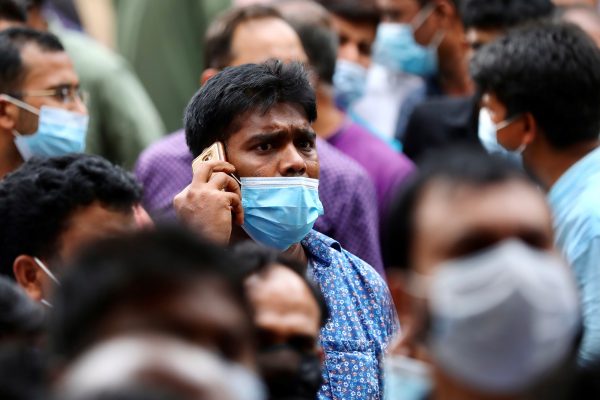Financial technology could play an important role in facilitating greater financial inclusion and addressing the challenges experienced during COVID-19. A report published by the World Economic Forum shows that when people with disabilities can manage money, their economic vulnerability decreases and overall economic health improves. When people with disabilities can access mobile devices, content and inclusive financial offerings — such as being able to conduct transactions without visiting financial institutions or ATMs and utilise financial resources for income generation — they benefit in many ways. These benefits are most evident in countries where strong financial technologies are in place.
A number of service providers already offer Mobile Financial Services (MFS) globally and one of them is M-Pesa in Kenya, which has achieved great success in terms of financially including people living in poverty. Other initiatives, such as Purple and True Link have started providing support services like financial literary education to people with disabilities. Though these are great initiatives, people with disabilities, especially those living in poverty, have not substantially benefitted from these platforms.
Data from the Central Bank of Bangladesh shows that 13 banks are currently offering MFS services in Bangladesh. Some service providers are bKash, Rocket and Nagad. The current number of agents is over 1.6 million and the registered clients number approximately 212 million. A few providers have millions of customers and even reach rural areas in Bangladesh. MFS services offer increased financial freedom particularly to women, support the digital banking landscape in Bangladesh and assist in income generation and savings.
MFS innovation has received local and global recognition due to its contribution to greater financial inclusion and many have advocated for the idea to be replicated in other countries seeking to be more inclusive. At the same time, people with disabilities in Bangladesh have not yet realised the substantial benefits from these services.
The supply and demand sides of digital financial services face multiple challenges. The World Economic Forum states that people with disabilities are a potential market segment, but service providers are struggling to tap into this. Many lack awareness about this potential market and have limited experience in dealing with the needs of people with varied disabilities. Service providers have not involved people with disabilities in the process of designing financial products and their delivery mechanism. On top of this, the effective role of regulators in ensuring digital financial inclusion of people with disabilities is notably absent.
People with disabilities who are living in poverty experience a range of barriers in accessing digital financial services — lack of awareness about available products and services, limited digital literacy and websites that are not accommodating to disabilities. In particular, individuals with visual impairments and intellectual disabilities often encounter difficulties in accessing financial information.
Inclusive initiatives are essential to ensure financial inclusion of people with disabilities in Bangladesh. People with disabilities should have access to accessibility features in their products and services, such as disability-friendly customer services, easy-to-read instructions, touch screen functionality and text-to-voice options tailored to those with visual impairments.
Many people with disabilities seek support from caregivers or family members to access and operate digital platforms for financial transactions, which could put their financial and personal data confidentiality at risk. Service providers could address this concern through innovative practices. Understanding the concept of disability at the organisational level is important. This will allow financial institutions to understand the lived experiences of people with different types of disabilities and offer customised services.
The government of Bangladesh should have a strong policy focus that develops an inclusive digital ecosystem to ensure that people with disabilities have access to technologies and training. These policies should be developed through consultation with people with various disabilities and the government should ensure that these policies are being implemented as expected. Special attention should be given to women with disabilities who are living in poverty and in remote rural areas.
As the proliferation of digital financial services increases over time, Bangladesh should work efficiently to benefit from this growth by ensuring digital financial inclusion of people with disabilities. Other countries across Asia can learn from the experiences of MFS in Bangladesh to identify possible areas where they can leverage their financial technology platforms to increase financial inclusion.
Dr Debashis Sarker is Research Fellow at Torrens University Australia.

